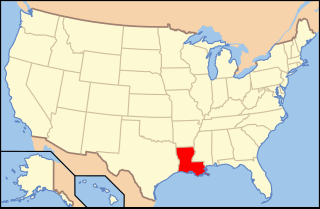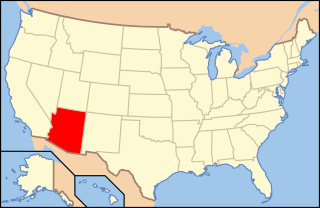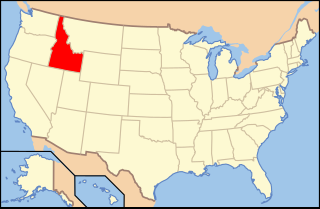This article needs additional citations for verification .(July 2010) |
| |||
|---|---|---|---|
| +... |
This is a list of notable events in the history of LGBT rights that took place in the year 1998.
This article needs additional citations for verification .(July 2010) |
| |||
|---|---|---|---|
| +... |
This is a list of notable events in the history of LGBT rights that took place in the year 1998.
This is a list of notable events in the history of LGBT rights that took place in the year 1999.
This is a list of notable events in the history of LGBT rights that took place in the year 2005.

The rights of lesbian, gay, bisexual, transgender, and queer (LGBTQ) people in the U.S. state of Utah have significantly evolved in the 21st century. Protective laws have become increasingly enacted since 2014, despite the state's reputation as socially conservative and highly religious. Utah's anti-sodomy law was invalidated in 2003 by Lawrence v. Texas, and fully repealed by the state legislature in 2019. Same-sex marriage has been legal since the state's ban was ruled unconstitutional by federal courts in 2014. In addition, statewide anti-discrimination laws now cover sexual orientation and gender identity in employment and housing, and the use of conversion therapy on minors is prohibited. In spite of this, there are still a few differences between the treatment of LGBTQ people and the rest of the population, and the rights of transgender youth are restricted.

Lesbian, gay, bisexual, and transgender (LGBT) rights in the United States are among the most advanced in the world, with public opinion and jurisprudence changing significantly since the late 1980s.

Lesbian, gay, bisexual, transgender, and queer (LGBTQ) people in the U.S. state of Wyoming may face some legal challenges not experienced by non-LGBTQ residents. Same-sex sexual activity has been legal in Wyoming since 1977, and same-sex marriage was legalized in the state in October 2014. Wyoming statutes do not address discrimination on the basis of sexual orientation and gender identity; however, the U.S. Supreme Court's ruling in Bostock v. Clayton County established that employment discrimination against LGBTQ people is illegal under federal law. In addition, the cities of Jackson, Casper, and Laramie have enacted ordinances outlawing discrimination in housing and public accommodations that cover sexual orientation and gender identity.

Lesbian, gay, bisexual, transgender, and queer (LGBTQ) people in the U.S. state of Louisiana may face some legal challenges not experienced by non-LGBTQ residents. Same-sex sexual activity is legal in Louisiana as a result of the U.S. Supreme Court decision in Lawrence v. Texas. Same-sex marriage has been recognized in the state since June 2015 as a result of the Supreme Court's decision in Obergefell v. Hodges.

Lesbian, gay, bisexual, transgender, and queer (LGBTQ) people in the U.S. state of New Jersey have the same legal rights as non-LGBTQ people. LGBT individuals in New Jersey enjoy strong protections from discrimination, and have had the same marriage rights as heterosexual people since October 21, 2013.

In the United States, lesbian, gay, bisexual, and transgender (LGBTQ) people have a long history, including vibrant subcultures and advocacy battles for social and religious acceptance and legal rights.

Lesbian, gay, bisexual, transgender, and queer (LGBTQ) people in the U.S. state of Arizona may face legal challenges not experienced by non-LGBTQ residents. Same-sex sexual activity is legal in Arizona, and same-sex couples are able to marry and adopt. Nevertheless, the state provides only limited protections against discrimination on the basis of sexual orientation and gender identity. Several cities, including Phoenix and Tucson, have enacted ordinances to protect LGBTQ people from unfair discrimination in employment, housing and public accommodations.

Lesbian, gay, bisexual, transgender, and queer (LGBTQ) rights in the U.S. state of Indiana have been shaped by both state and federal law. These evolved from harsh penalties established early in the state's history to the decriminalization of same-sex activity in 1977 and the legalization of same-sex marriage in 2014. Indiana was subject to an April 2017 federal court ruling that discrimination based on sexual orientation is tantamount to discrimination on account of "sex", as defined by the Civil Rights Act of 1964. The ruling establishes sexual orientation as a protected characteristic in the workplace, forbidding unfair discrimination, although Indiana state statutes do not include sexual orientation or gender identity among its categories of discrimination.

Lesbian, gay, bisexual, transgender, and queer (LGBTQ) people in the U.S. state of South Carolina may face some legal challenges not experienced by non-LGBTQ residents. Same-sex sexual activity is legal in South Carolina as a result of the U.S. Supreme Court decision in Lawrence v. Texas, although the state legislature has not repealed its sodomy laws. Same-sex couples and families headed by same-sex couples are eligible for all of the protections available to opposite-sex married couples. However, discrimination on the basis of sexual orientation and gender identity is not banned statewide.

Lesbian, gay, bisexual transgender, and queer (LGBTQ) people in the U.S. state of Idaho face some legal challenges not experienced by non-LGBTQ people. Same-sex sexual activity is legal in Idaho, and same-sex marriage has been legal in the state since October 2014. State statutes do not address discrimination based on sexual orientation and gender identity; however, the U.S. Supreme Court's ruling in Bostock v. Clayton County established that employment discrimination against LGBTQ people is illegal under federal law. A number of cities and counties provide further protections, namely in housing and public accommodations. A 2019 Public Religion Research Institute opinion poll showed that 71% of Idahoans supported anti-discrimination legislation protecting LGBTQ people, and a 2016 survey by the same pollster found majority support for same-sex marriage.

Lesbian, gay, bisexual, transgender, and queer (LGBTQ) people in the U.S. state of Kansas have federal protections, but many face some legal challenges on the state level that are not experienced by non-LGBTQ residents. Same-sex sexual activity is legal in Kansas under the US Supreme Court case Lawrence v. Texas, although the state legislature has not repealed its sodomy laws that only apply to same-sex sexual acts. The state has prohibited discrimination on the basis of sexual orientation and gender identity in employment, housing and public accommodations since 2020. Proposed bills restricting preferred gender identity on legal documents, bans on transgender people in women's sports, bathroom use restrictions, among other bills were vetoed numerous times by Democratic Governor Laura Kelly since 2021. However, many of Kelly's vetoes were overridden by the Republican supermajority in the Kansas legislature and became law.

Lesbian, gay, bisexual, transgender, and queer (LGBTQ) rights in the U.S. state of Alaska have evolved significantly over the years. Since 1980, same-sex sexual conduct has been allowed, and same-sex couples can marry since October 2014. The state offers few legal protections against discrimination on the basis of sexual orientation and gender identity, leaving LGBTQ people vulnerable to discrimination in housing and public accommodations; however, the U.S. Supreme Court's ruling in Bostock v. Clayton County established that employment discrimination against LGBTQ people is illegal under federal law. In addition, four Alaskan cities, Anchorage, Juneau, Sitka and Ketchikan, representing about 46% of the state population, have passed discrimination protections for housing and public accommodations.

Lesbian, gay, bisexual, transgender, and queer (LGBTQ) people in the U.S. state of Oklahoma face legal challenges not experienced by non-LGBTQ residents. Same-sex sexual activity is legal in Oklahoma as a result of the U.S. Supreme Court decision in Lawrence v. Texas, although the state legislature has not repealed its sodomy laws. Both same-sex marriage and adoption by same-sex couples have been permitted since October 2014. State statutes do not prohibit discrimination based on sexual orientation or gender identity; however, the U.S. Supreme Court's ruling in Bostock v. Clayton County established that employment discrimination against LGBTQ people is illegal. This practice may still continue, as Oklahoma is an at-will employment state and it is still legal to fire an employee without requiring the employer to disclose any reason.

Lesbian, gay, bisexual, transgender, and queer (LGBTQ) people in the U.S. state of Mississippi face legal challenges and discrimination not experienced by non-LGBTQ residents. LGBT rights in Mississippi are limited in comparison to other states. Same-sex sexual activity is legal in Mississippi as a result of the U.S. Supreme Court decision in Lawrence v. Texas. Same-sex marriage has been recognized since June 2015 in accordance with the Supreme Court's decision in Obergefell v. Hodges. State statutes do not address discrimination on the basis of sexual orientation and gender identity; however, the U.S. Supreme Court's ruling in Bostock v. Clayton County established that employment discrimination against LGBTQ people is illegal under federal law. The state capital Jackson and a number of other cities provide protections in housing and public accommodations as well.

Lesbian, gay, bisexual, and transgender (LGBT) rights in Guam have improved significantly in recent years. Same-sex sexual activity has not been criminalized since 1978, and same-sex marriage has been allowed since June 2015. The U.S. territory now has discrimination protections in employment for both sexual orientation and gender identity. Additionally, federal law has provided for hate crime coverage since 2009. Gender changes are legal in Guam, provided the applicant has undergone sex reassignment surgery.
This is a timeline of notable events in the history of lesbian, gay, bisexual and transgender people in South Africa.

In the U.S. Virgin Islands, Lesbian, gay, bisexual, and transgender (LGBT) rights have evolved substantially in recent years. Same-sex sexual activity has been legal since 1985. The region also provides explicit legal protections against discrimination for LGBTQ residents since December 2022. Following the Supreme Court's ruling in Obergefell v. Hodges on June 26, 2015, which found the denial of marriage rights to same-sex couples unconstitutional, same-sex marriage became legal in the islands.